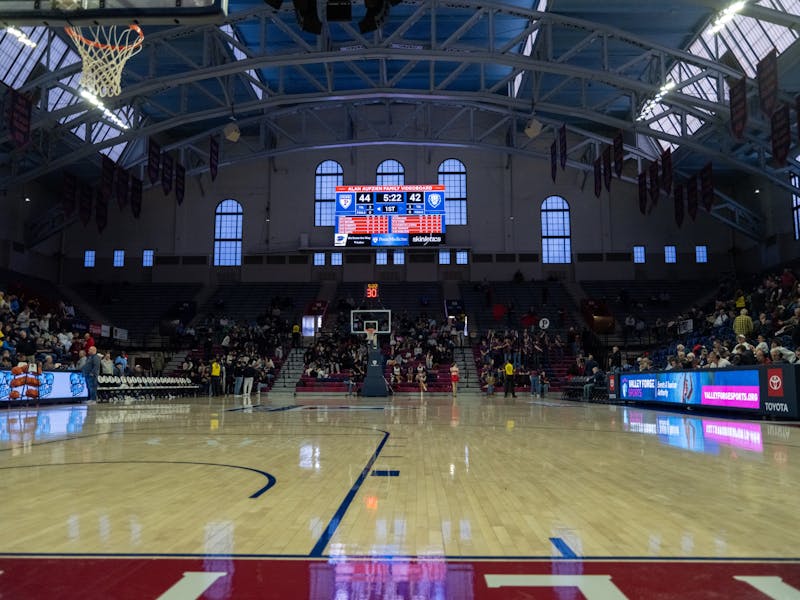
While Penn has returned to in-person learning since the 2021 fall semester, remote learning and working have become the norm for college students over the last couple years.
In fact, I was only able to find remote work for the past two summers. For the two summer internships, either the employer transitioned the entire internship program online or the internship was in another state and I did not want to relocate for the summer. But I am not alone.
According to a survey from the National Association of Colleges and Employers conducted in fall 2020, more than 60% of employers with 5,001-20,000 employees had transitioned their internship programs to a virtual format since the summer of 2020. In a 2021 survey, NACE asked employers whether they would consider making their internships permanently remote or hybrid, and 50% of employers answered “likely” or “extremely likely.”
Despite the widened prevalence and preference for remote work among employers, interns generally are not happy about their remote work experiences. Research from Glassdoor reveals that negative mentions of remote work from interns grew a whopping 548% between 2019 and 2021.
“Although remote work has been positive for many regular employees, it has disrupted many interns’ experiences,” wrote Glassdoor economist Lauren Thomas.
My experiences reaffirmed my dislike for remote work. In summer 2021, I interned for a think tank based in Virginia remotely. While I love doing research and talking with policy experts around the world, I missed a vital part of my research experience — exchanging ideas organically through casual conversations with my peer researchers and mentors. If, instead, I wanted to host or join a brainstorming session with other interns, there were a series of challenges. Finding a common time when everyone was available, making sure that the internet was not disrupted, and disrupting Zoom conversations because of serious time lags rendered traditional office talks impossible.
I also had a hard time building a strong relationship with my supervisor. As a person who loves inviting people to coffee chats and casual lunches to develop professional relationships beyond simply the work, remote internships have greatly limited the opportunities to connect with my supervisors in a more meaningful way.
At my current internship with the Philadelphia Housing Authority, I have enjoyed having dynamic conversations with my deskmate colleagues about their intended career paths and what they enjoy about their work. Knowing that help is only one question away whenever I run into challenges during my work is also reassuring.
Unlike professionals with years of work experience, college students pursue internships to learn how to work in a professional setting and expand their networks. A tremendous part of a meaningful internship experience is chipped away if we are forced to, or choose to, stay in our apartments and interact with one another behind screens.
Tech giants and many industry leaders tout remote work as the future. I think they have it backwards, at least when it comes to offering only remote options for their interns. Years of remote learning and remote work have taught me that humans are gregarious animals, and without the communal aspect of work, unexpected challenges lurk around the corner for society.
As college students, remote learning didn’t work for many of us. Lack of in-person interaction and reduced rates of classroom participation impose a significant toll on students’ mental health. Virtual instruction also disadvantaged nonwhite, low-income college students. Research from Columbia University shows that classes that became remote disproportionately consisted of nonwhite students. Disadvantaged students also lacked the resources to excel at remote learning, such as computer access, a quiet study space, or help from parents.
Neither should we expect remote internships to work.
Just as there are benefits to remote learning, the advantages of remote work are strong. Many people have chosen to stay home in pursuit of greater work/life balance. However, these benefits are less weighty for a college student or recent college graduate looking to expand their network in preparation for their next jobs.
Some also argue that remote internships increased accessibility to disadvantaged and low-income students due to the elimination of relocation costs. But I believe that true accessibility should not be established at the expense of a reduced internship experience compared to their peers who opted for in-person mode. Companies should instead offer disadvantaged students assistance to relocate and rent subsidies to equalize the playing field.
For safeguarding your mental health, for enriching your internship experience, and for expanding your network, consider an in-person internship.
To the big companies that can afford to help all their interns, consider helping your disadvantaged interns achieve equal footing instead of offering remote internships that further widen the unequal gap.
SAM ZOU is a College junior studying political science from Shenzhen, China. His email is samzou@sas.upenn.edu.
The Daily Pennsylvanian is an independent, student-run newspaper. Please consider making a donation to support the coverage that shapes the University. Your generosity ensures a future of strong journalism at Penn.
Donate







